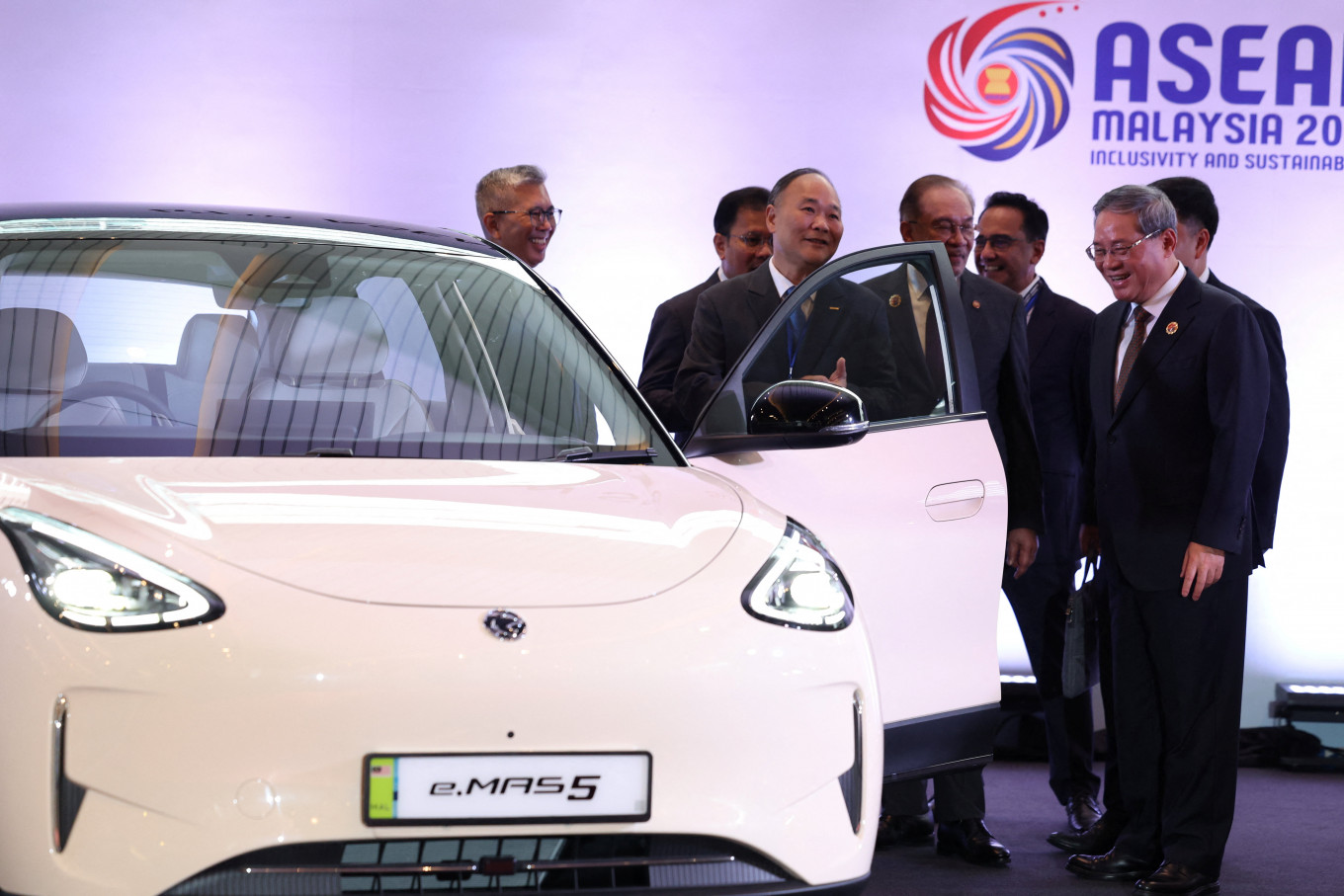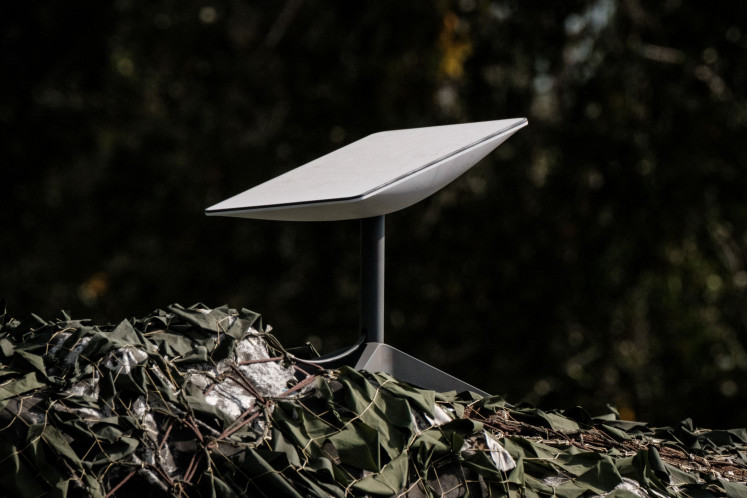Popular Reads
Top Results
Can't find what you're looking for?
View all search resultsPopular Reads
Top Results
Can't find what you're looking for?
View all search resultsChina and ASEAN, hit by US tariffs, sign upgraded free trade pact
Change text size
Gift Premium Articles
to Anyone
 Chinese Premier Li Qiang reacts as he, along with Malaysian Prime Minister Anwar Ibrahim, inspects a car produced by Malaysia's national automaker, Proton, in which China's Zhejiang Geely Holding Group holds a 49.9% stake, ahead of the signing ceremony for the ASEAN–China Free Trade Area 3.0 Upgrade and the 28th ASEAN–China Summit, held as part of the 47th ASEAN Summit in Kuala Lumpur on Oct. 28, 2025. (Reuters/Chalinee Thirasupa)
Chinese Premier Li Qiang reacts as he, along with Malaysian Prime Minister Anwar Ibrahim, inspects a car produced by Malaysia's national automaker, Proton, in which China's Zhejiang Geely Holding Group holds a 49.9% stake, ahead of the signing ceremony for the ASEAN–China Free Trade Area 3.0 Upgrade and the 28th ASEAN–China Summit, held as part of the 47th ASEAN Summit in Kuala Lumpur on Oct. 28, 2025. (Reuters/Chalinee Thirasupa)
T
he Southeast Asian bloc ASEAN and China on Tuesday signed an upgrade to their free trade agreement, which is expected to include sections on digital, green economy and other new industries.
The 11-member Association of Southeast Asian Nations is China's largest trading partner, with bilateral trade totaling US$771 billion last year, according to ASEAN statistics.
China is seeking to intensify its engagement with ASEAN, a region with a collective gross domestic product of $3.8 trillion, to counter hefty import tariffs imposed by US President Donald Trump's administration on countries around the world.
Beijing has been seeking to position itself as a more open economy, despite criticism from other major powers of its expanding export restrictions on rare earths and other critical minerals.
The so-called 3.0 version of the free trade agreement with ASEAN was signed into effect at a summit of the bloc's leaders in Malaysia, which Trump attended on Sunday at the start of his trip through Asia.
Negotiations on the upgraded ASEAN-China deal began in November 2022 and concluded in May this year, just after Trump's tariff offensive kicked into gear. Their first FTA came into force back in 2010.
China has previously said the agreement would pave the way for improved market access in sectors such as agriculture, the digital economy and pharmaceuticals between China and ASEAN.
Both China and ASEAN are part of the Regional Comprehensive Economic Partnership, the world's largest trading bloc which covers nearly a third of the global population and about 30 percent of global gross domestic product. Malaysia hosted an RCEP summit in Kuala Lumpur on Monday, the first in five years.
The bloc is seen by some analysts as a potential buffer against tariffs imposed by the United States, though its provisions are considered weaker than some other regional trade deals due to competing interests among its members.








